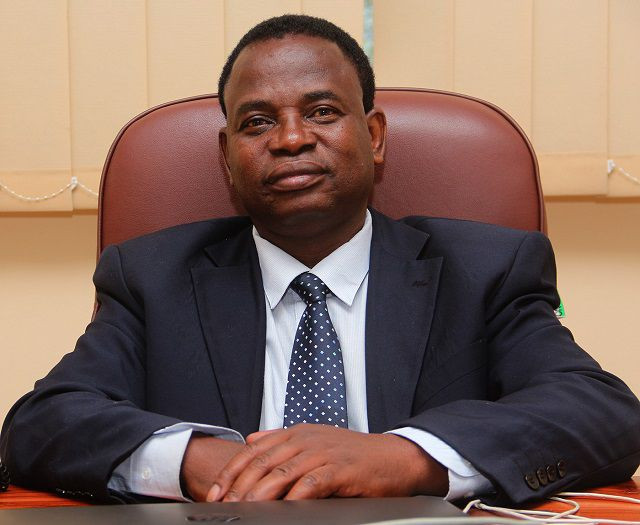
Organic farming: A prototype for sustainable agriculture ORGANIC agriculture is the use of green manure, compost, biological agriculture and biological fertilisers derived from animal waste.
The organic farming market size is expected to grow from US$150,63 billion in 2021 to US$169,04bn in 2022 at a compound annual growth rate (CAGR) of 12,2%.
In addition to existing agricultural challenges, the COVID-19 pandemic and the Russia-Ukraine war created issues such as the increase in prices of fuel, food commodities and particularly agrochemical input.
A shortage of chemical fertiliser is driving up food costs and creating a crisis for countries in Africa and has many desperate farmers looking for alternatives.
The global food supply is now at risk due to the shortage of fertiliser. Many warn that feeding a growing global population in a world of climate change will only become more difficult.
This revealed that the current agricultural systems based on the use of synthetic inputs are vulnerable and not sustainable as claimed. Agriculture accounts directly for 11%-13% of greenhouse emissions and indirectly for another 12%.
Organic agriculture is challenged to unlock its potential both as a role model and a real pathway to sustainability in agriculture and food systems.
The launch of various schemes by governments of various countries across the world is promoting organic farming.
- Chamisa under fire over US$120K donation
- Mavhunga puts DeMbare into Chibuku quarterfinals
- Pension funds bet on Cabora Bassa oilfields
- Councils defy govt fire tender directive
Keep Reading
Due to the health benefits and environmental benefits offered by organic products, governments are promoting organic farming activities by launching various schemes and encouraging the population to shift towards organic products.
Organic agriculture or ecologically-based farming is the use of green manure, compost, biological agriculture and biological fertilisers derived from animal waste.
Organic farming is an alternative form of farming for crops and livestock production that does not use pesticides, artificial fertilisers, genetically modified organisms, and antibiotics to increase production. This has many benefits to the environment and the individuals using these yields.
Small-scale farmers using organic farming methods have huge potential to expand global food production and organic farming methods actively regenerate resources and protect the environment from pollution and toxic wastes.
To promote the organic sector in Africa, countries should implement the African Heads of States Decision EX.CL/Dec.621(XVII) on organic farming, which was made following the report of the Conference of Ministers of Agriculture held in Lilongwe, Malawi in 2010.
In the same alignment, the governments should consider having organic agriculture integrated into the national agricultural policy and programmes.-Green Farmer
Understanding implications of Zim’s crisis on US policy THE United States (US) has limited direct interests in Zimbabwe. Bilateral trade and investment flows are small, and Zimbabwe does not directly threaten US security interests.
Indirectly, however, the United States has substantial equities at stake.
First, instability in Zimbabwe could result in internal violence and even greater humanitarian need than at present.
Even relatively low levels of violence could disrupt food supplies and require increased emergency aid from the United States and other donors.
Delivery of timely aid could be problematic if the amount of resources available from the United States for emergency assistance declines.
Second, political instability, violence and further economic decline in Zimbabwe could spill over into the fragile economies and social structures of South Africa and other Southern African Development Community nations.
Xenophobic violence directed at Zimbabwean migrants in South Africa has already been a problem and could become worse if large numbers of refugees began fleeing Zimbabwe.
Third, interparty tensions in South Africa over policies toward migrants could increase.
Even in its weakened economic state, Zimbabwe is a significant export market for South Africa and other regional countries.
Contraction of that market would be an economic setback for the region and a threat to US trade interests.
At a time of considerable turmoil in other regions of Africa, the loss of stability in southern Africa would be a blow to US interests.-George F Ward
Sadc electoral landscape telling THE Southern African Development Community (Sadc) region prides itself as a generally stable and peaceful part of African and aspires to entrench this stability through adhering to principles of democracy that include the holding of consistent, free and fair elections.
While the centrality of elections to democracy is accepted, the fact that elections in themselves are not enough for the democratisation process is equally accepted.
This desktop-based review of a selected group of Sadc States’ electoral landscape was carried out in order to assess the region’s footing in relation to electoral norms and practices.
The five countries selected were South Africa, Zimbabwe, the Democratic Republic of Congo (DRC), eSwatini and Namibia and all these countries have elections lined up between the time of writing and 2024.
While Sadc, as an institution, has rallied its membership to accede to and localise international instruments on democracy and good governance as well as the conduct of elections, the review sought to investigate the extent to which these find expression in the actual circumstances of electoral practices in the selected countries.
The review reasoned that the gap between norms and practices in the selected State’s recent elections would be a good basis to judge the extent to which the upcoming elections would be credible.
As such, for each of the selected States, an understanding of electoral dynamics was sought within the context of belonging to Sadc and each State’s own sovereignty.
While the sampled States are not similar in many ways, the review noted underlying similarities of relevance.
These similarities included the fact that all were signatories to the Sadc Treaty on which the Sadc Principles and Guidelines Governing Elections is based.
This is important in that there is scope for enforcement of said principles.
Another similarity to emerge is that all States maintain the standard institutions central to the free and fair conduct of elections and these include: Electoral management bodies; courts of law with the capacity to settle electoral disputes; to varying degrees space for media and civic society to operate in around electoral issues; an overbearing power of incumbency negating fair electoral practices; an open-arms approach to Sadc to observe elections; and a stated openness to holding free and fair elections.
There also emerged major differences between the four States polled.
These differences include: The fact that at least one of the countries is prone to military instability (DRC), the other has a system that confers political parties more control over elected leaders than the electorate (SA), in another the principle of separation of powers is not possible on the basis that the monarch is absolute (eSwatini), with a homegrown political system being used that does not permit political parties, and in yet another sampled State, the military has informed civilian politics to the extent of removing a democratically elected leader (Zimbabwe).
What is important about the above, as the review found, is that the electoral landscape of sampled States shows a stagnation that can perhaps be generalised to the region.
A reading of country specific findings led the review to the considered position that there is need for development of informed strategies to proffer best practice alternatives for the constituent members of the sub-region.
With findings indicating shrinking space for the media and civil society to operate in Zimbabwe, the DRC and Namibia, the review takes the view that unless Sadc intervenes to ensure that member States respect these institutions, then the electoral landscape will not yield credible elections.
In the end, the review notes that there is an urgent need for Sadc to move from being a minimalist organisation to one that pushes the agenda for democratisation with energy as a failure to do so will perpetuate the region’s States attitude of cosmetic approaches to electoral processes.Ciasa










